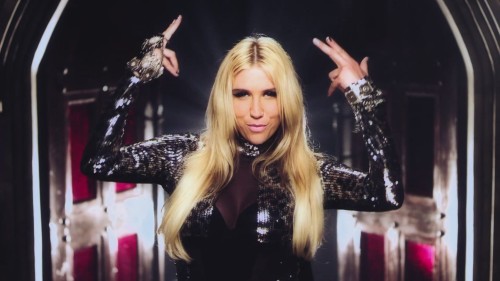You guys, I have a confession to make:
Sometimes I listen to Ke$ha. For instance, “Blow”:
Sometimes—not often, but sometimes—I even go to dance clubs. Willingly, I should add—not just because my friends have coerced me. Near where I grew up is a club named Necto, which has a different theme for each day of the week. A few times when I got the under-age bracelet, and a few times when I got the buying-drinks hand stamp, I’ve been in there. Yes, it’s usually prompted by a social outing, but I join in of my own volition. The best part? Hovering around the dance floor on a sort of catwalk, with a full view of the DJ, flashing lights, and, of course, (seemingly) spasming bodies. Get a black russian, find a place with a protruding drink rest, and just take it in. The people-watching in clubs is like nothing else in the way that the mythical mass suicide of lemmings, with the exception that the people-watching is real.
Here’s the thing:
Now what? What? We’re taking control
We get what we want
We do what you don’t
Dirt and glitter cover the floor
We’re pretty and sick
We’re young and we’re bored
It’s time to lose your mind and let the crazy out
(This place about to—)
Tonight we’re taking names ’cause we don’t mess around
I have found, in highly non-scientific study, that introverts show as much “guilty pleasure” for songs like this as extroverts do, even though the speaker (because we’re writers and know better than to assume that the singer, Ke$ha, is part of the actual “we” of the song) is ostentatiously extroverted in her behaviors, essentially invading a club and overthrowing the existing leadership. Drink that Kool-Aid, she insists; Shut the DJ down.
 “Blow,” I would posit, is an introvert’s wish fulfillment the same way some songs allow us to live out our dreams of all-night partying or unconditional praise of our beauty. All media, after all, has an element of wish fulfillment, doesn’t it?
“Blow,” I would posit, is an introvert’s wish fulfillment the same way some songs allow us to live out our dreams of all-night partying or unconditional praise of our beauty. All media, after all, has an element of wish fulfillment, doesn’t it?
Or maybe not. After all, countless songs bemoan being on the sea of heartbreak or an ex-lover’s suicide. There’s a painful resonance in some music—hence the cliché of the angst-ridden teenager flopped back on the bed, listening to equally angst-ridden tunes, or the grieving figure leaning a forehead on a rain-streaked window while a melancholy sonata murmurs in the background. I’ll grant this, and I’ll openly admit to having indulged myself in this. Who hasn’t?
But then the Ke$has come along, and we can visualize ourselves as feeling like P Diddy. We can pretend, for three and a half minutes, that we’re not loitering on that catwalk, that instead we’re in the thick of those hot, writhing bodies on the dance floor, feeding on the energy of a crowd, like some sort of foreign creature we observe but can imitate only poorly.
Books are the same, though. We have to empathize, in some way. We have to see our dead ex, or our recent breakup, or our dark, tortured, misunderstood soul somewhere in the lines. Still, it’s too boring to read a story just about ourselves. We can do that any day just by getting out of bed. The writer has to hint at a wish, something we want but can’t have. Love. Survival. Understanding. Justice.
It’s never that easy, of course. Protagonists can’t just show at a club, fight till they see the sunlight, and set everything in the world right. Still, is it so wrong, every now and then, to put a character in a deliciously improbable situation, just to see what happens?